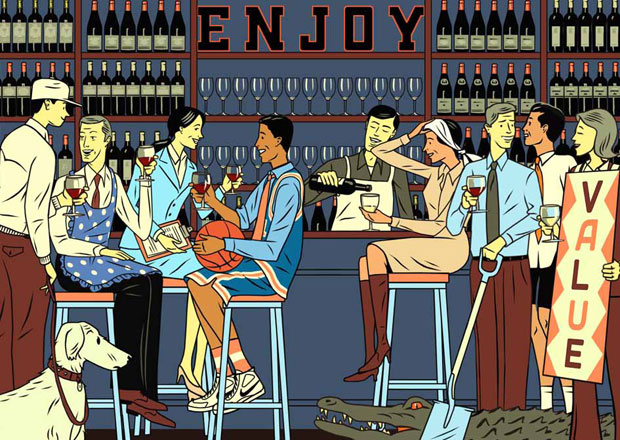
Some Wine Bar Theory from David Gilbertson
The business guru explains (among other things) why the boss needs to know what the doorman thinks
Our latest advice book Wine Bar Theory by David Gilbertson is one we keep returning to for its clarity of thought; good advice and the witty way David's ideas are illustrated by Bill Butcher.
We caught up with David recently to ask him a few questions about it. As the book does such a great job of boiling business problems down into small, easily digestible chunks - he actually wrote it in PowerPoint in order to keep it succinct - we thought we'd give him a little bit of room to stretch out and tell us a bit more about some of the ideas in it. We hope you enjoy his thoughts, many of which we're sure will echo your own experiences at work. We've broken them up with some of Bill Butcher's wonderful illustrations from the book.
"The whole premise of the book is about the need for simplicity, clarity and being relentless in cutting through the fug that surrounds so much business. The way it's been designed supports that messaging. So the aim was to make a book that's accessible to someone starting out in business and to people in mid and upper-management.
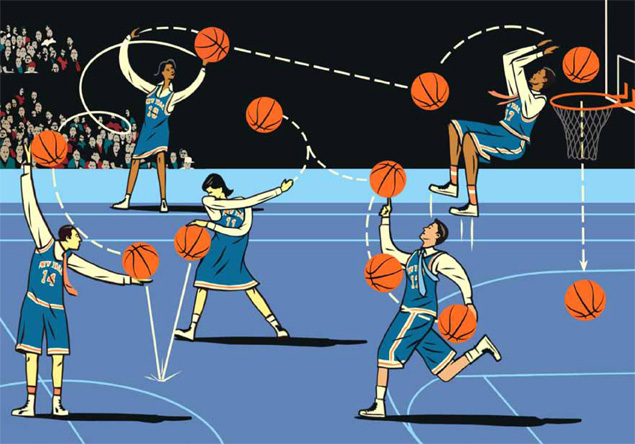
"I find a lot of business books are overwritten and tend to have one idea that is done in the first 20 pages. This is an antidote to that - you can read it in a couple of hours and it covers a broad footprint of things in business but without getting lost in verbiage or false academia.
"The fact is everyone is so blooming busy these days that even though they know they should stop and think for a minute they carry on repeating stuff over and over again. We're better at solving other people's problems and asking them why they do it like that rather than taking a moment to question ourselves.
"The big thing is to create some time to recharge batteries. You haven't done a good job if you've worked every hour and you get to Friday night and you're knackered. If that's happening on a consistent basis you're going to underperform. Those situations require corporate physiotherapy. It's not helpful to ignore them.
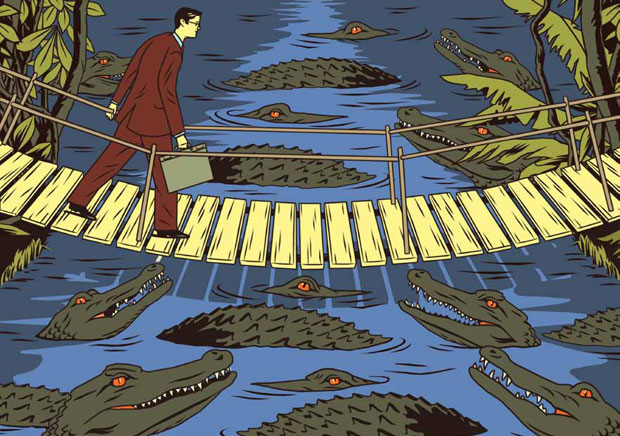
"In many cases it comes down to not revisiting the business model and getting busier and busier and getting less and less clear on what matters. People get tied up with doing it the same way and they don't bother to ask the customer what's important to them.
"But often the culture at the top is 'Here's your contract, this is how we work' and there isn't any invitation for people to ask 'Can I do things differently?' So people who are smart get their ideas battered out of them. That leads to a conspiracy of silence so things don't get challenged and don't get changed. So people just get on and do their little bit and go home at the end of the day.
"But really, I don't know how people can operate in a business that doesn't know where it's going. If you do that the business just ends up moving to places that may or may not be good. You should draw a picture of where you are or where your business is and where you want to be and draw a line between the two. Otherwise you can end up in completely the wrong place.
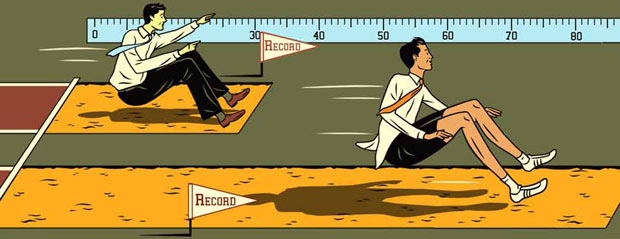
"Everyone in a business wants it to be sustainably successful. So the aims of the doorman and the CEO are the same. But the CEO can be a long way away from the door. I tend to see them all on the same level but doing different jobs. While the CEO has an important role in setting tone in many ways he or she is the least sensible person to implement change because the distance is huge. The doorman is the person who can see where the lunacy is! The organisation needs to be capable of hearing that voice and correcting things.
"The best businesses in the 21st century are the ones where there is a sense of engagement from everyone in the business. The best big business are where ideas and innovation and change are embraced and if you can make a big business nimble then you've got a world beater.
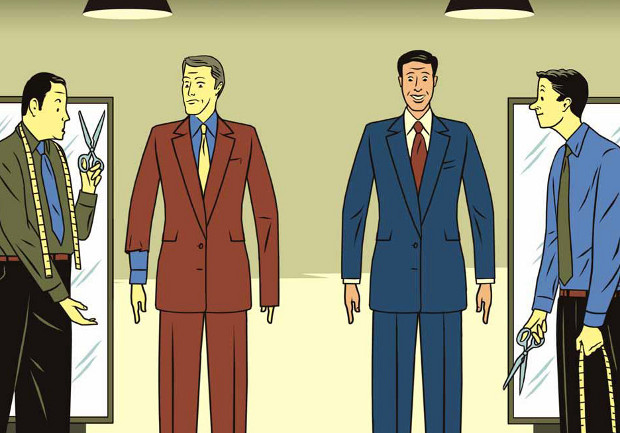
"However, there isn't a nurturing view in this country. We don't celebrate success very well. We like people to serve their time and we like to hold them down. But we all thrive on recognition and positive feedback. You want to be somewhere where you'll be positively reinforced. If you're in a job where you're being told you're no good you soon become no good at it. So you have to get yourself somewhere where you can be successful - keep moving until you find it. Likewise, if you're producing something third rate and the market is telling you it's third rate, you've got to get out."
Want more? Then read through these extracts here, and buy the book from the people who made it, here.